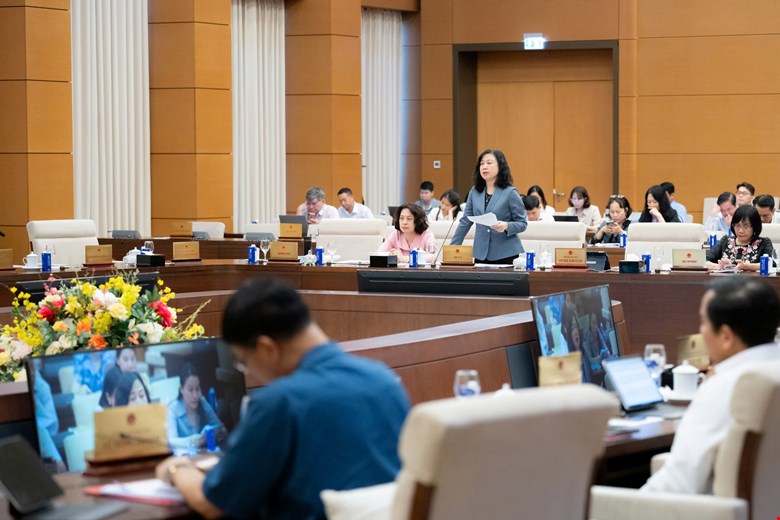On the afternoon of October 8, the National Assembly Standing Committee gave its opinion on the draft Population Law.
Presenting the draft Population Law, Minister of Health Dao Hong Lan said that the national birth rate is tending to decrease below the replacement rate; the imbalance between sexes at birth is still high compared to the natural balance threshold; population quality has not met requirements.
The Minister of Health stated that the reason is that communication and mobilization to raise awareness still has many limitations.
Many places are still heavily affected by gender discrimination. The 2003 Population Ordinance is no longer suitable for practice and is not synchronous with the current legal system.
Therefore, the draft Law adds many new regulations, including encouraging domestic conventions and conventions of the community to prevent the act of selecting the gender of the fetus.
The Draft Law also stipulates the prohibition of selecting the gender of the fetus in any form, except in cases with medical requirements; prohibition of forced, encouraging or consulting on sexuality; prohibition of discrimination and discrimination in reproductive health care.
The Minister of Health said that gender imbalance at birth in Vietnam has occurred since 2006, and has remained stable at over 112 boys/100 girls (natural imbalance level is 104-106).
If not controlled, this situation can cause gender imbalance in marriage age, making it difficult for many men to get married, leading to long-term social consequences, the Minister stated.
Article 15 on minimizing gender imbalance at birth of the Draft Population Law clearly states: Encourage the inclusion of male-on-female content, not selecting gender at birth in the village estimate and Convention of the community.
Suspend medical practitioners who propagate, notify, or disclose information about the gender of the fetus to customers, except in cases of determining gender for diagnosis and treatment of gender-related genetic diseases as prescribed by the Ministry of Health.
The suspension of practice is implemented in accordance with the provisions of the law on medical examination and treatment.

In addition to the group of policies on gender control, the draft Population Law proposes many solutions to promote birth rates, giving couples and individuals the right to decide on birth, time and distance between births in accordance with health and income conditions.
Accordingly, women who have two children in industrial parks, export processing zones and localities with low fertility are supported to rent or buy social housing.
Female workers are entitled to maternity leave for 6 months before and after giving birth; if they have twins or more, starting from the second child, they are entitled to an additional month's leave for each child.
Male workers with twin wives or second children are entitled to 10 working days off; having three or more children are entitled to an additional three days off for each child from the third child.
The Standing Committee of the Law and Justice Committee said that the Law on Medical Examination and Treatment does not currently stipulate the form of suspension from practice for the act of disclosing the gender of the fetus.
Therefore, this agency recommends careful research to ensure consistency between laws. At the same time, the bill also needs to expand the scope of handling and application to all acts affecting gender choice, not just acts of disclosure of information.
According to the plan, the Population Law will be submitted by the Government to the National Assembly for consideration at the 10th Session opening on October 20.











